- Home
- Barry Eisler
Hard Rain Page 27
Hard Rain Read online
Page 27
She was walking briskly. I watched as she approached the perimeter of the metal guardrail. My breath was moving in and out of my mouth in silent shallow drafts. One. Two. Three.
I jerked hard on the line. It popped up from its taped moorings to ankle level and I heard her cry of surprise as she tripped over it. She might have recovered her balance, but those stylish heels were on my side. I stepped out from behind the pillar just in time to see her spilling to the ground.
I shoved my keys back in a pants pocket and darted up behind her. By the time I reached her, she had pulled herself up on all fours. She still had the canister in one hand. I stomped on her wrist and she cried out. I reached down and yanked what she was holding from her fingers. I glanced at it quickly—oleoresin capsicum, seventeen percent. Pepper spray. The good stuff. I shoved it in a pocket and dragged her over to the nearest car, away from the cameras.
I shoved her up against the passenger-side door. She looked frightened, but I didn’t see any recognition in her eyes. Given my disguise, she might have been thinking that I was a mugger or rapist.
“You don’t remember me, Yukiko?” I asked. “We met at Damask Rose. I’m Harry’s friend. Was his friend.”
Her brow furrowed for a moment as she tried to square the evidence of her eyes with that of her ears. Then she saw it. Her mouth dropped open but no sound came out.
“Where can I find Murakami?” I asked.
She closed her mouth. She was breathing rapidly through her nose, but other than that she had managed to suppress any outward sign of fear. I almost admired her for her poise.
“If you want to live, you’ll tell me what I want to know,” I said.
She looked at me but said nothing.
I popped an uppercut into her gut. It was hard enough to hurt, but not too hard. I needed her to be able to talk. She gasped and doubled over.
“The next one is to that beautiful face,” I said. “When I’m through with your nose, teeth, and eyes, your dancing days will be over. Now I want to know one thing. Who killed him? Was it you, or was it Murakami?”
I didn’t really give a shit how she might answer. I certainly wouldn’t trust anything she said. But I wanted to give her the opportunity to plead something exculpatory, so she might believe I’d let her live if she told me where I could find her boss.
“It was . . . it was him,” she gasped.
“All right. Tell me where I can find him.”
“I don’t know.”
“You better think of something.”
“He’s hard to find. I don’t know how to reach him. He just shows up at the club sometimes.”
She glanced behind me, toward the garage door. I shook my head. “I know what you’re thinking,” I said. “If you can just hold out long enough for another car to pull in, I’ll have to run and let you go. Or maybe someone saw what happened on those cameras, maybe they’re on their way now. But you’ve got it backward. If someone comes and you haven’t told me what I want to hear, that’s when I’ll kill you. Now where is he?”
She shook her head.
“We’re running out of time,” I said. “I’m going to give you one more chance. Tell me and you live. Don’t tell me and you die. Right here.”
She clenched her jaw and looked at me.
Damn, she was tough. I might have known, after seeing the way she handled her nitroglycerin-volatile boss.
“All right,” I said. “You win.”
I popped another uppercut into her midsection, this one hard enough to cause damage. She doubled over with a sharp exhalation of breath. I stepped behind her, took her head in one gloved hand and her chin in the other, and broke her neck. She was dead before she hit the floor.
I’d never done that to a woman before. I thought for a second of some of the things I had said to Naomi about subornment, about what Midori had said about atonement. But other than a detached observation about the relative ease of the maneuver because of the lighter muscle mass, I felt nothing.
“Say hello to Harry,” I said. I picked up her purse to make it look like she’d been the victim of a random robbery, collected the fishing line and tape, and took the stairs to the first floor. I let myself out through the front entrance, keeping my head down to avoid the camera there. I ducked around the corner into the alley, where I pulled off the hat and wig, spat out the false teeth, and rubbed the ash off my face with the damp towel. I pulled off the homeless man’s clothes and the long underwear and changed into what I had bought at the Gap, then shoved everything back into the bag. I ran a mental list of the contents of the bag to ensure I wasn’t leaving anything behind, then double-checked the ground just to be sure. Everything was copacetic. I took a deep breath and strolled back out onto Aoyama-dori.
When I was a few blocks away, I stopped under a streetlight and quickly went through her purse. There was nothing in it of interest.
I walked down Roppongi-dori until I found an appropriate colony of homeless men. I left the bag and the purse close by them and walked on, peeling off and dropping the gloves as I did so. I would get rid of the teeth elsewhere. They had my DNA on them, and weren’t the kind of item that Tokyo’s shifting populations of homeless men would assimilate and thereby sanitize.
Ducking into an alley, I discharged a shot from the canister of pepper spray to confirm that it worked. I decided to keep it. When Murakami learned about Yukiko, I might want a little extra protection.
19
THE NEXT AFTERNOON I did an SDR that finished at JR Harajuku station. I exited and let the eternal river of hip-hop shoppers, attired in ways that an extraterrestrial would probably find welcoming, carry me onto Takeshita-dori, Tokyo’s teen shopping mecca. Only in Tokyo could the jam-packed bizarrerie of a byway like Takeshita-dori exist side by side with the elegant teahouses and antiques shops of Brahms-no-komichi, and the stark contrast is one of the reasons Harajuku has always been one of my favorite parts of the city.
Tatsu had assured me that Biddle employed no bodyguards, but there’s nothing like independent verification to lower my blood pressure. There were a number of points from which I might approach Jardin de Luseine, and I moved around each of them, probing, imagining where I might position watchers if I were protecting someone in the restaurant. I walked in tightening concentric circles until I was sure that no one was positioned outside. Then I made my way back to Takeshita-dori, where I cut across an alley that ran alongside the restaurant itself.
I spotted him through the enormous plate-glass window on the alley side of the building. He was sitting alone, reading a newspaper, sipping something from a china cup. The same man I had seen in the photograph, elegantly dressed in a single-breasted blue pinstriped suit, a white shirt with a spread collar, and a burgundy rep tie. Overall the impression was fastidious, but not overly so; less American, more British; CEO rather than spymaster.
He was sitting in one of the window seats, with his profile to the alley, and that told me a lot: he was insensitive to his surroundings; he didn’t understand that glass is no deterrent to a sniper, or to an ordinary gunman; he thought like a civilian, not a spy. I watched him silently for a moment, imagining high native intelligence, within which he would take refuge when he found himself inadequate to the demands of the real world; Ivy League schools and possibly a graduate degree, from which he would have learned much about office corridors and nothing of the street; a passionless but adequate marriage to a woman who had borne him the required two or three children while dutifully following him from post to career-building post, hiding her growing sense of loss and inchoate desperation behind cocktail party smiles and repairing with increasing frequency to a refrigerated bottle of Chablis or Chardonnay to beat back the long silences of listless afternoons.
I went inside. The door opened and closed with an audible clack, but Biddle didn’t look up to check on who had entered.
I moved across the dark wood floor, beneath the Art Deco chandeliers, around Victorian tables and chairs, alongside a grand pi
ano. Only when I was actually standing in front of him did he raise his head from his reading. It took him a half-second to recognize me. When he did he recoiled. “What the hell!” he stammered.
I sat across from him. He started to get up. I restrained him with a firm hand on his shoulder.
“Stay seated,” I said quietly. “Keep your hands where I can see them. I’m only here to talk. If I wanted to kill you, you’d be dead already.”
His eyes bulged. “What the hell!” he said again.
“Calm down,” I told him. “You’ve been looking for me. Here I am.”
He exhaled sharply and swallowed. “Sorry,” he said. “I just didn’t expect to see you like this.”
I waited.
“All right,” he said, after a moment. “The first thing I should mention is that this has nothing to do with William Holtzer.”
I kept waiting.
“I mean, he didn’t have many supporters. He isn’t missed.”
I doubted Holtzer’s own family would miss him. I waited some more.
“So what we want, the reason we’ve been looking for you,” he went on, “is, we want you to, ah, interfere with someone’s activities.”
A new euphemism, I thought. So exciting.
“Who?” I asked, to let him know that he was finally on the right track.
“Well, just a second. Before we talk about that, I need to know, are you interested?”
I looked at him. “Mr. Biddle, I’m sure you know that I’m selective about whose activities I’ll ‘interfere’ with. So without knowing who, I couldn’t tell you whether I’d be interested or not.”
“It’s a man. A principal.”
I nodded. “Good.”
“ ‘Good’ meaning, you’re interested?”
“Meaning you haven’t made me uninterested, so far.”
He nodded. “You know the person we’re talking about. You met him recently, when he was following an acquaintance of yours.”
Only long-practiced discretion prevented me from showing my surprise. “Tell me,” I said.
“Kanezaki.”
“Why?”
He frowned. “What do you mean, ‘why’?”
“Let’s just say that my unhappy history with your organization necessitates higher than usual levels of disclosure.”
“I’m sorry, I can’t tell you more than I have already.”
“I’m sorry, you’ll have to.”
“Or you won’t take the job?”
“Or I will take your life.”
He blanched, but other than that kept his composure. “I don’t really think this conversation calls for threats,” he said. “We’re discussing a business proposition.”
“ ‘Threats,” ’ I said, my tone thoughtful. “I’ve survived for a long time by identifying and preemptively eliminating ‘threats.’ So here’s my business proposition to you. Convince me that you’re not a ‘threat,’ and I won’t eliminate you.”
“I don’t believe this,” he said. “Do you know who I am?”
“Tell me, so we can get it right on the headstone.”
He glowered at me. After a moment, he said, “All right, I’ll tell you. But only because it makes sense for you to know, not because of your threats.” He took a sip from the china cup. “Kanezaki is a rogue. He’s been running a secret program that could cause embarrassment on both sides of the Pacific if it were to get out.”
“Crepuscular?” I asked.
His mouth dropped open. “You know . . . how could you possibly know about that? From Kanezaki?”
You dumb bastard, I thought. Whatever I knew, you just confirmed it.
I looked at him. “Mr. Biddle, how do you think I’ve lasted as long as I have in this line of work? I make it my business to know what I’m stepping into and whether the reward is worth the risk. That’s how I stay alive and my clients get their money’s worth.”
I waited while he digested this new worldview.
“What else do you know about this?” he asked after a moment, trying to be shrewd now.
“Plenty. Now tell me why you’ve decided that Kanezaki has become a liability. From what I understand, up until now he’s been your golden boy.”
He crinkled his nose as though at an offensive odor. “In his own mind he’s golden. Forgive me, but simply having Japanese blood doesn’t give someone special insights into this country.”
I shook my head to show him that of course his comment didn’t offend me.
“Insight into this country, any country, takes years of education, experience, sensitivity,” he said. “But this kid, he thinks he knows enough to design and run his own damn foreign policy.”
I nodded to show that I was sympathetic to his point, and he continued.
“All right, you know there was a program. But it was shut down six months ago. I don’t necessarily agree with the shutdown, but my private thoughts on the matter are irrelevant. What is relevant is that Kanezaki has been continuing it on his own.”
“I can see where that would be a problem,” I said.
“Yes, well, it’s a shame in some ways. He’s got a lot of passion and he’s not without talent. But this matter must be put to rest, before some real damage occurs.”
“What do you want me to do?” I asked.
He looked at me. “I want you to . . . look, I understand that you can arrange these things so that it looks as though the person did it himself.”
“That’s true,” I said, noting that he had initially spoken of what “we” want and was now saying “I.”
“Well, that’s what needs to be done. Is there a usual fee?”
“For a CIA officer? The fee would be high.”
“All right. What is it?”
He was eager enough so that I was half-tempted to bilk him. Make him pay up front, then Sayonara, asshole.
And maybe I would. But I still had a few questions.
“Let me ask you,” I said, furrowing my brow in my best Columbo imitation. “How do you know about me? About my services?”
“The Agency has a dossier on you,” he said. “Most of it assembled through Holtzer’s efforts.”
“Oh,” I said. “Of course. That makes sense. And when you first started looking for me, was it for the same job you’re offering me today?”
He wouldn’t know that I was aware he had been with Kanezaki when he had first approached Tatsu inquiring about my whereabouts. The question was designed to trip him up.
But it didn’t. “No,” he said. “The original thinking was that we could use you for Crepuscular. But the program is done now, as I said. There may still be some role in the future, but for now I just need you to tie up loose ends.”
I nodded. “It’s just that it’s strange. I mean, you had Kanezaki looking for me, right?”
“Yes,” he said. His tone was cautious, as though he was afraid of what I might ask next and was already trying to think of an answer.
“Well, isn’t that odd? Given that you actually wanted me to ‘interfere’ with him.”
He shook his head. “He was only supposed to locate you, not actually meet you. I was going to handle the meeting personally.”
I smiled, seeing the truth.
“All right,” he said. “I’d read your dossier. I thought it was possible that, if you learned that someone was trying to find you, you might, as you put it, see that person as a threat and act accordingly.”
I almost laughed. Biddle had been looking for a freebie.
“What about the guy who was with him at the time?” I asked. “Kanezaki said he was diplomatic security.”
“He was. What of it?”
“Why would you offer a bodyguard to a guy you wanted taken out?”
He pursed his lips. “Solo surveillance against someone like you is impossible. Kanezaki needed a partner. I wanted someone from outside the Agency, someone who wouldn’t know what was really going on.”
“Someone expendable.”
“If you want to p
ut it that way.”
“Mr. Biddle,” I said, “I’m getting the feeling that this is a personal matter.”
There was a long pause, then he said, “What if it is?”
I shrugged. “It’s all the same to me, as long as I get paid. But we’re not off to a good start. You’ve been telling me that the problem with Kanezaki is that he’s a rogue, that his activities could cause embarrassment on both sides of the Pacific. It sounds as though the potential embarrassment is more localized than that.”
He looked at me. “What I told you is not untrue. But yes, I have personal reasons, as well. What do you think is going to happen to me as Kanezaki’s direct supervisor if his activities are discovered?”
“Likely a shit storm. But I don’t see how Kanezaki’s suicide would solve your problems. Won’t there still be records of his activities? Receipts from disbursements, that kind of thing?”
His eyes narrowed. “I’m taking care of that,” he said.
“Sure, you know better than I do. I’m just mentioning it. By the way, where do you suppose Kanezaki has been getting the money to run Crepuscular even after the higher-ups have shut off the spigot? I imagine we’re talking about some significant sums.”
He glanced to his right. The glance said, Think of something.
“I don’t know,” he said.
“If you keep lying to me,” I said, my tone mild, “I’m going to start seeing you as a threat.”
He looked at me for a long moment. Finally he said, “All right. Kanezaki has been getting the money from a man named Fumio Tanaka. Someone with inherited money and the right political sympathies. I don’t see that as relevant to the job at hand.”
I paused as though considering. “Well, even if Kanezaki goes away, Tanaka is still around, isn’t he? Why don’t I interfere with his activities, too?”
He shook his head violently. “No,” he said. “That won’t be necessary. I’ve asked for your assistance with a particular matter and would like an answer with regard to that matter only, please.”

 All the Devils
All the Devils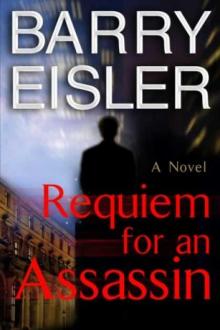 Requiem for an Assassin
Requiem for an Assassin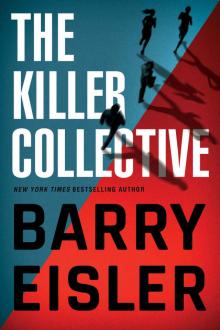 The Killer Collective
The Killer Collective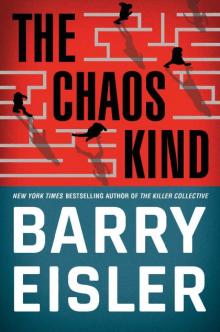 The Chaos Kind
The Chaos Kind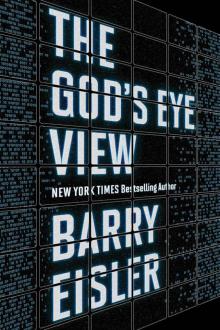 The God's Eye View
The God's Eye View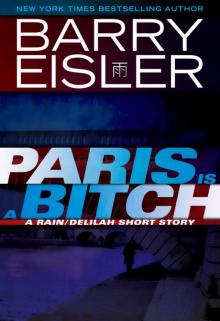 Paris is a Bitch
Paris is a Bitch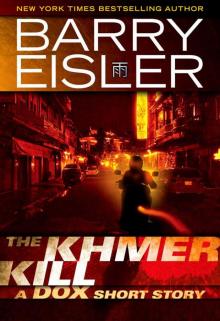 The Khmer Kill: A Dox Short Story (Kindle Single)
The Khmer Kill: A Dox Short Story (Kindle Single)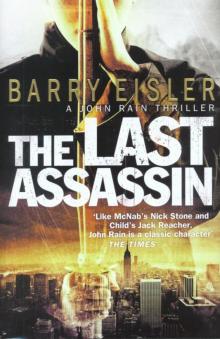 The Last Assassin
The Last Assassin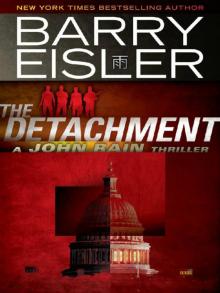 The Detachment
The Detachment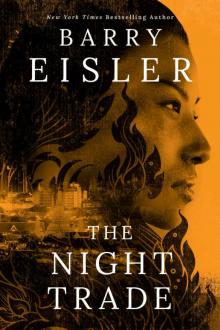 The Night Trade (A Livia Lone Novel Book 2)
The Night Trade (A Livia Lone Novel Book 2)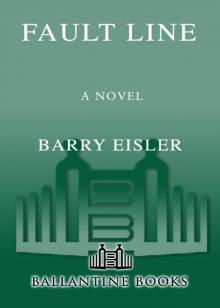 Fault Line
Fault Line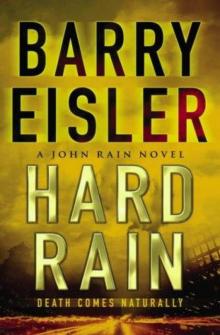 Hard Rain
Hard Rain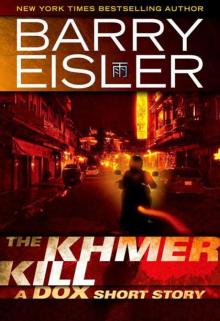 The Khmer Kill_A Dox Short Story
The Khmer Kill_A Dox Short Story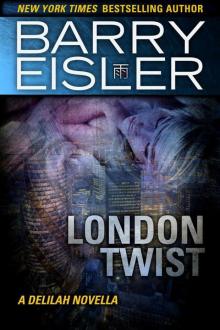 London Twist: A Delilah Novella
London Twist: A Delilah Novella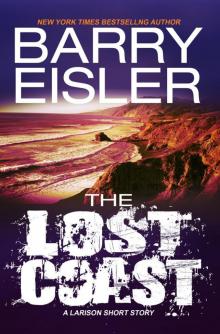 The Lost Coast
The Lost Coast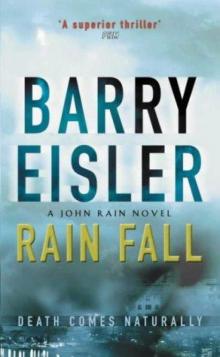 Rain Fall
Rain Fall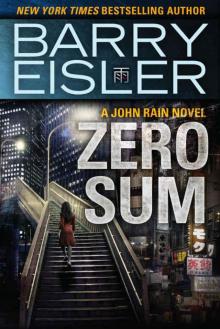 Zero Sum
Zero Sum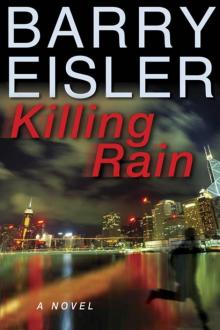 Killing Rain
Killing Rain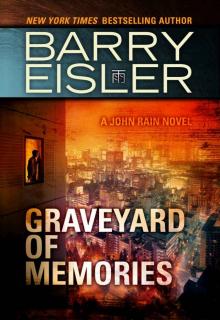 John Rain 08: Graveyard of Memories
John Rain 08: Graveyard of Memories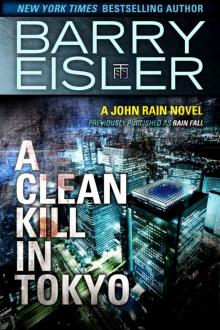 A Clean Kill in Tokyo (previously published as Rain Fall)
A Clean Kill in Tokyo (previously published as Rain Fall) Inside Out: A novel
Inside Out: A novel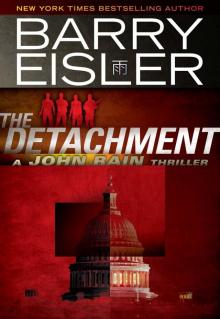 John Rain 07 - The Detachment
John Rain 07 - The Detachment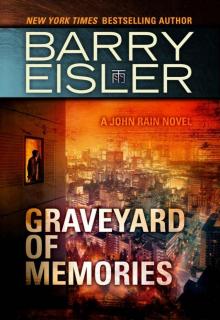 Graveyard of Memories
Graveyard of Memories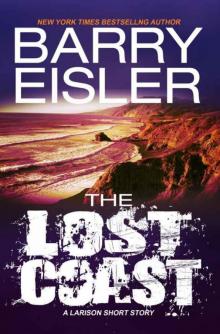 The Lost Coast -- A Larison Short Story
The Lost Coast -- A Larison Short Story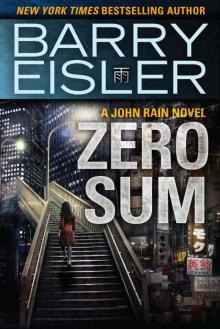 Zero Sum (A John Rain Novel)
Zero Sum (A John Rain Novel)